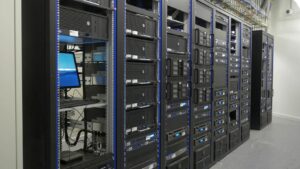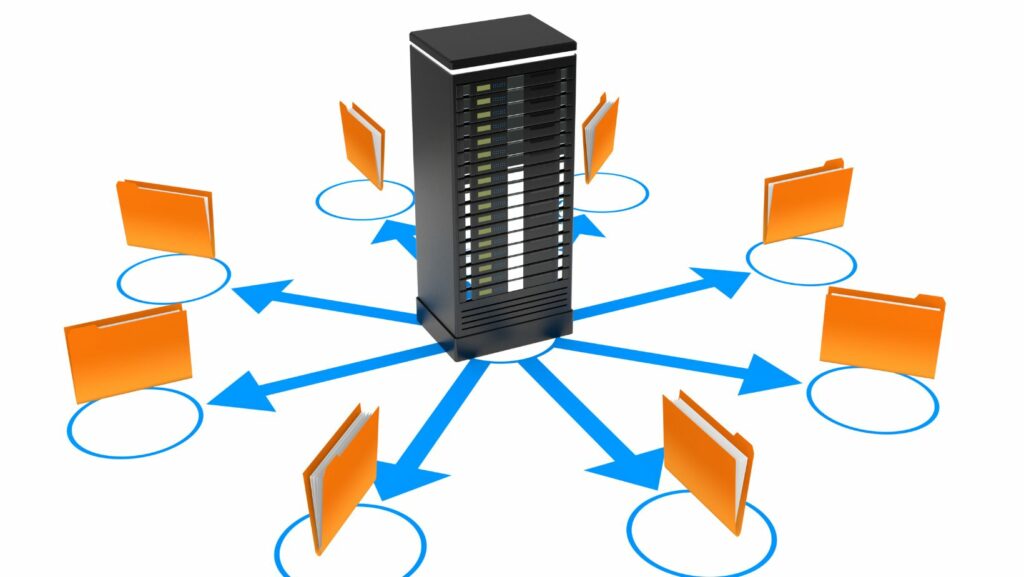In the dynamic world of web hosting, trends shift as quickly as digital traffic. Shared hosting, once the undisputed king of the hill, is facing new challenges and opportunities. This article explores the latest trends shaping the shared hosting landscape. From emerging technologies to evolving user demands, shared hosting isn’t what it used to be. It’s a realm where cost-effectiveness meets innovation, and where providers strive to offer more for less. Let’s delve into the changes and what they mean for the future of shared hosting.
Shared Hosting Trends
 Shared hosting continues to play a key role in today’s digital sphere. It offers an affordable route, particularly for emerging businesses and startups, to establish a digital presence without bearing high costs of dedicated hosting. Shared hosting also presents itself as an efficient solution for blogs and small to medium-sized websites, given its cost-effectiveness and relatively straightforward management. Certainly, there are those who argue for the superior control and performance of dedicated or VPS hosting. However, the practicality of shared hosting, concerning lower costs and maintenance overhead, cannot be disregarded. Looking at sheer numbers, a significant majority of websites globally still operate on shared hosting plans, corroborating their ongoing relevance. According to Hosting Tribunal, an authoritative source on web hosting statistics, over 35% of all websites are on shared hosting plans. This strengthens the claim of shared hosting as an essential component in the current digital environment.
Shared hosting continues to play a key role in today’s digital sphere. It offers an affordable route, particularly for emerging businesses and startups, to establish a digital presence without bearing high costs of dedicated hosting. Shared hosting also presents itself as an efficient solution for blogs and small to medium-sized websites, given its cost-effectiveness and relatively straightforward management. Certainly, there are those who argue for the superior control and performance of dedicated or VPS hosting. However, the practicality of shared hosting, concerning lower costs and maintenance overhead, cannot be disregarded. Looking at sheer numbers, a significant majority of websites globally still operate on shared hosting plans, corroborating their ongoing relevance. According to Hosting Tribunal, an authoritative source on web hosting statistics, over 35% of all websites are on shared hosting plans. This strengthens the claim of shared hosting as an essential component in the current digital environment.
Current Shared Hosting Trends
Server speed and reliability garner increasing importance in the shared hosting scene. Users expect rapidly loading websites as quick load times improve user experience and boost search engine rankings. According to Google, 53% of mobile site visits are abandoned if pages take longer than three seconds to load. Consequently, shared hosting providers underline their efforts towards providing fast, dependable servers to meet this demand. For instance, companies adopt solid-state drives (SSDs), recognized for their fast read-write speed and reliability, over traditional hard disk drives (HDDs). Security has always been crucial in shared hosting, and its importance is even more evident now. Shared hosting accounts, due to their interconnected nature, pose more significant physical and digital security risks. One successful attack may compromise multiple accounts. Hence, providers now stress enhanced security measures. Many are incorporating advanced firewalls, intrusion detection systems, and secure sockets layer (SSL) certificates. Web Hosting Geeks’ study found that 70% of websites are vulnerable to hacking, showing the urgency of prioritized security in shared hosting.
rapidly loading websites as quick load times improve user experience and boost search engine rankings. According to Google, 53% of mobile site visits are abandoned if pages take longer than three seconds to load. Consequently, shared hosting providers underline their efforts towards providing fast, dependable servers to meet this demand. For instance, companies adopt solid-state drives (SSDs), recognized for their fast read-write speed and reliability, over traditional hard disk drives (HDDs). Security has always been crucial in shared hosting, and its importance is even more evident now. Shared hosting accounts, due to their interconnected nature, pose more significant physical and digital security risks. One successful attack may compromise multiple accounts. Hence, providers now stress enhanced security measures. Many are incorporating advanced firewalls, intrusion detection systems, and secure sockets layer (SSL) certificates. Web Hosting Geeks’ study found that 70% of websites are vulnerable to hacking, showing the urgency of prioritized security in shared hosting.
The Impact of These Trends on Consumers
 Influence upon choices emerges as the most notable impact these trends have on consumers. Instead of picking shared hosting packages based solely on price, consumers now seek a diverse blend of features to meet their specific needs. Security concerns also heavily influence consumer choices. In light of heightened cyber threats, users often look for advanced security offerings in their hosting packages. For instance, consumers may opt for a provider that employs robust security measures such as firewalls, DDoS protection, and malware scanning. Environmentally-conscious shared hosting, also referred to as green hosting, is another prevailing trend affecting consumer behavior. With the rising awareness surrounding environmental issues, more consumers show inclination towards providers adopting eco-friendly strategies. Simply put, hosting companies utilizing energy-efficient servers or renewable energy sources often attract eco-aware consumers.
Influence upon choices emerges as the most notable impact these trends have on consumers. Instead of picking shared hosting packages based solely on price, consumers now seek a diverse blend of features to meet their specific needs. Security concerns also heavily influence consumer choices. In light of heightened cyber threats, users often look for advanced security offerings in their hosting packages. For instance, consumers may opt for a provider that employs robust security measures such as firewalls, DDoS protection, and malware scanning. Environmentally-conscious shared hosting, also referred to as green hosting, is another prevailing trend affecting consumer behavior. With the rising awareness surrounding environmental issues, more consumers show inclination towards providers adopting eco-friendly strategies. Simply put, hosting companies utilizing energy-efficient servers or renewable energy sources often attract eco-aware consumers.
Future Predictions for Shared Hosting Trends
As the shared hosting landscape continues to evolve, it’s clear that consumer demands are shaping its future. The need for speed and reliability isn’t going away. In fact, it’s set to become even more critical as online platforms strive for improved user experience and higher SEO rankings. Security will also remain a top priority. As shared hosting accounts are interconnected, advanced security measures are becoming a must-have rather than a nice-to-have. The emergence of green hosting solutions, meanwhile, indicates a shift towards sustainability in the industry. This trend is likely to gain momentum as more consumers become environmentally conscious.
future. The need for speed and reliability isn’t going away. In fact, it’s set to become even more critical as online platforms strive for improved user experience and higher SEO rankings. Security will also remain a top priority. As shared hosting accounts are interconnected, advanced security measures are becoming a must-have rather than a nice-to-have. The emergence of green hosting solutions, meanwhile, indicates a shift towards sustainability in the industry. This trend is likely to gain momentum as more consumers become environmentally conscious.



